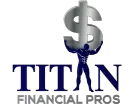How To Avoid Bank Fees
Occasionally many of us will experience the dread of a bounced check, this will result in an abundance of fee’s that include an overdraft charge and a fee for the bounced check with the bank alone. Not to mention the fee charged by the establishment that accepted the check. This article is geared towards helping you avoid fees that are typically associated with bouncing a check. It is important that you consistently keep track of everything that goes in and comes out of your checking account.
Each time you perform anything on your checking account it is important that you update your register. This holds true with each check that is written, any withdraws made via an ATM machine, if make use of your debit card for a purchase, or if you use your account as a direct payment method for our expenses. Any time that you do any of these actions and do not have the proper amount within your checking account; it will result in your account being overdrawn.
When this happens your bank has a few choices, they could either pay the amount owed even if you do not currently hold the correct amount in your account. If they choose this option, you will be charged what is called an overdraft charge. Your bank could also choose to simply return the check marked NSF (Non Sufficient Funds) without paying a penny on it, you will then be charged a fee for bouncing the check with the bank as well as the merchant.
To avoid these fees make sure you are consistent within your register, make sure that you write every check, withdrawal, or purchase within it immediately, along with any fees that are charged with these actions. Keep your register balanced at all times, this will help ensure that you have an up-to-the-minute track of what you do and do not have. Furthermore, make sure you always keep track of any online payments and direct debit payments that you could have created for utility payments or other types of expenses. When you receive your statements every month, always balance and review them with your register. This will help you know which checks have or have not cleared as of yet.
If you do happen to make an error, you should immediately deposit the proper amount of funds into your account to try to avoid any additional fees that may be charged. In addition, you can help with these fees if you have a savings account linked directly to your checking account to help cover these types of events. You could also apply for credit with your bank to set up a limit of overdraft; this allows the bank to “lend” you the money you would need to cover your bounced check or overdraft.
These are just a few tips to help avoid bank fees. Hopefully you found these helpful. If you would like to learn even more about how you can streamline the efficiency of your business finances, then you are more than welcome to contact us and we will take a look at your unique situation and offer some sensible solutions that would work best for you!
“TITAN Financial Pros provide an informational service only and are not responsible for any investments made applying this information. The results described are not distinctive and are not guarantees of future income. Any assumption contains risk and is 100% the responsibility of the individual to assess the risks/rewards involved. We bear no liability assumed or implied for your application of the information shared from this content. This information is for educational and entertainment purposes only.”
Is your business losing money?
Click the button below to get our FREE report on the 5 Most Common Ways Businesses Lose Money and more importantly,
HOW YOU CAN FIX THEM!



